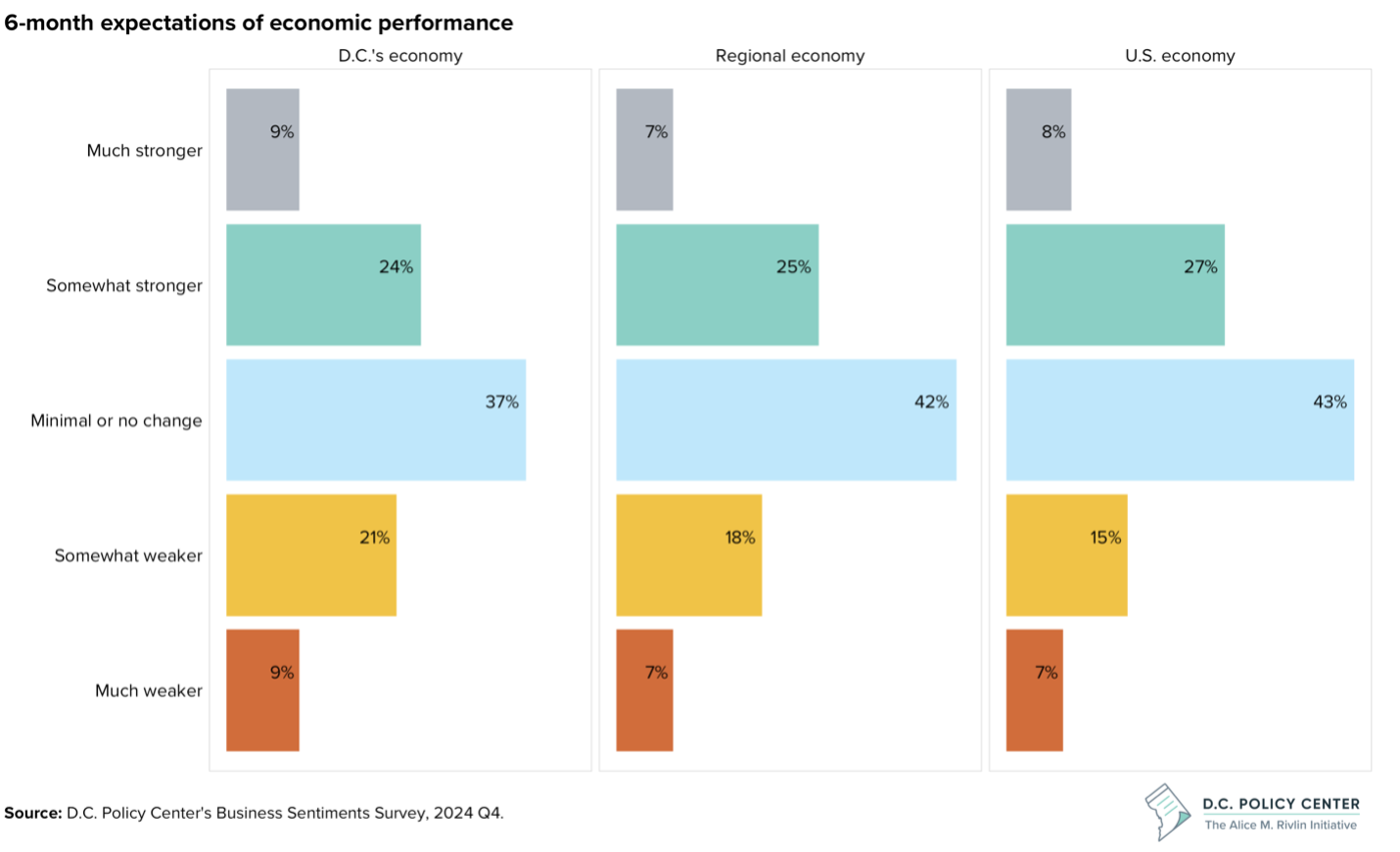The D.C. Policy Center’s Rivlin Initiative recently finished the fourth round of the Business Sentiments Survey. The survey’s objective is to provide comprehensive information on the business community’s experiences to elected officials, the media, and the broader community.
In the fourth round, 220 respondents—mostly executives or owners—completed the survey. Respondents primarily came from established, small businesses. For instance, 86 percent of respondents came from businesses with twenty employees or fewer, and 54 percent came from businesses that have been in operation for over a decade. Nevertheless, respondents represented a range of industries. 23 percent of respondents came from the professional, scientific, and technical services sector. Other well-represented sectors include real estate (11 percent), restaurants (10 percent), and arts, entertainment, and recreation (9 percent).[1]
For the first time since the Business Sentiments Survey launched in January 2024, more survey respondents expected the D.C. economy to strengthen than to weaken over the next six months. 33 percent of respondents expected the D.C. economy would be somewhat or much stronger, and 30 percent believed the District’s economy would be somewhat or much weaker. The remaining 37 percent of respondents expected minimal or no change in the performance of the District’s economy.
As in the previous round of the survey, respondents in round four were more optimistic than pessimistic about the direction of the regional and national economies. Over the next six months, 32 percent expected the regional economy to be somewhat or much stronger, while 35 percent held the same expectation for the national economy. Meanwhile, the percentage of survey respondents who anticipated somewhat or much weaker regional and national economies clocked in at 25 percent and 22 percent, respectively.
Given that the national unemployment rate declined from 4.3 percent in July 2024 to 4.1 percent in September 2024, it is understandable that respondents remain more optimistic than pessimistic about the national economy. The relative optimism regarding the District’s economy is more difficult to explain. During the same period, the unemployment rate in the District rose from 5.5 percent to 5.7 percent, and nonfarm employment in the city contracted.[2] Perhaps the businesses surveyed are expecting a turnaround. In future months, it will be interesting to see if the more optimistic expectations about the District’s economy are prescient.
[1] It is important to keep in mind that the survey results reported here may not be representative of the opinions of the D.C. region’s business community. Furthermore, this article’s organizational structure follows previous charts of the week that preview Business Sentiment Survey results.
[2] Nonfarm employment is not seasonally adjusted.
